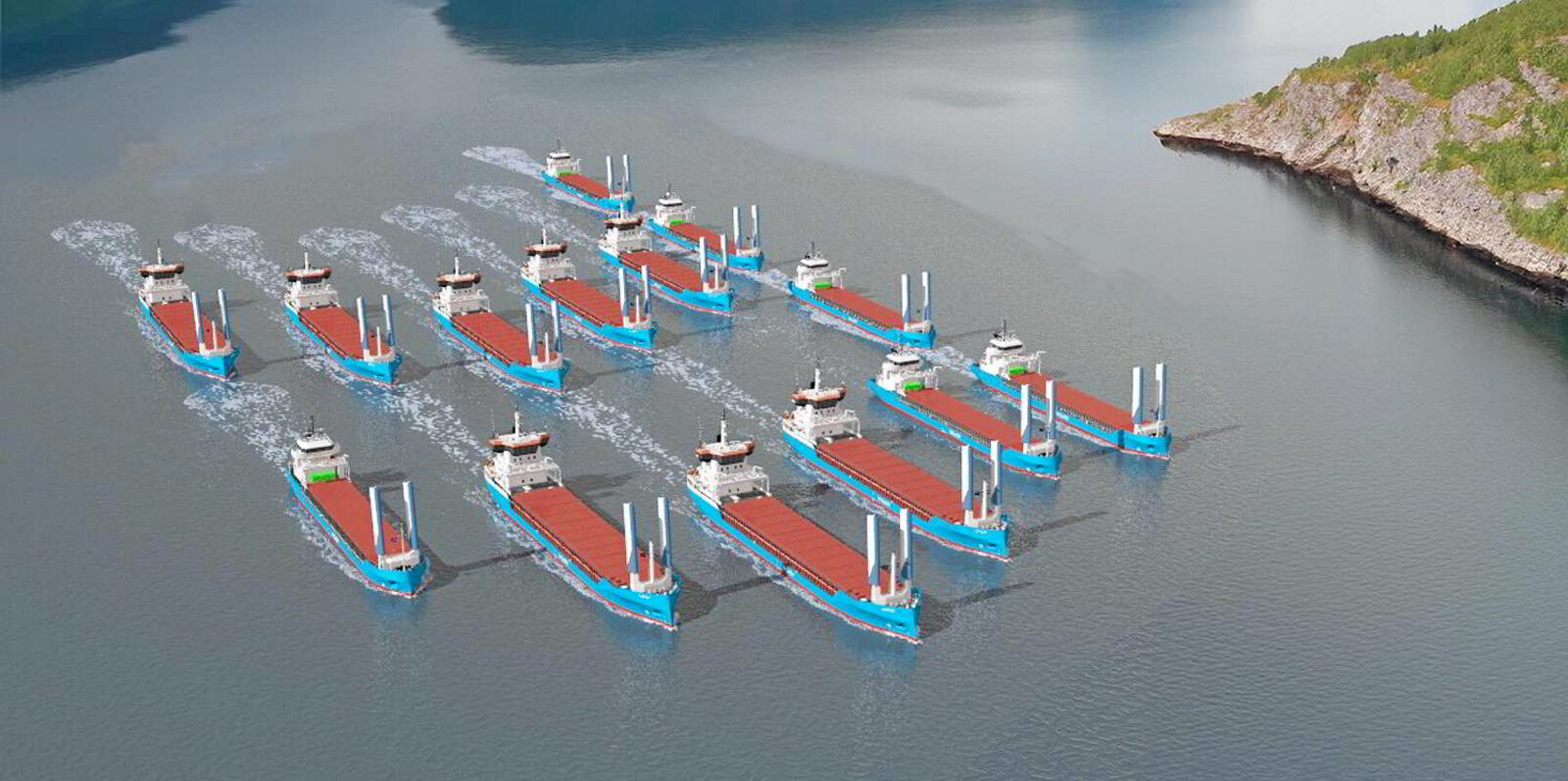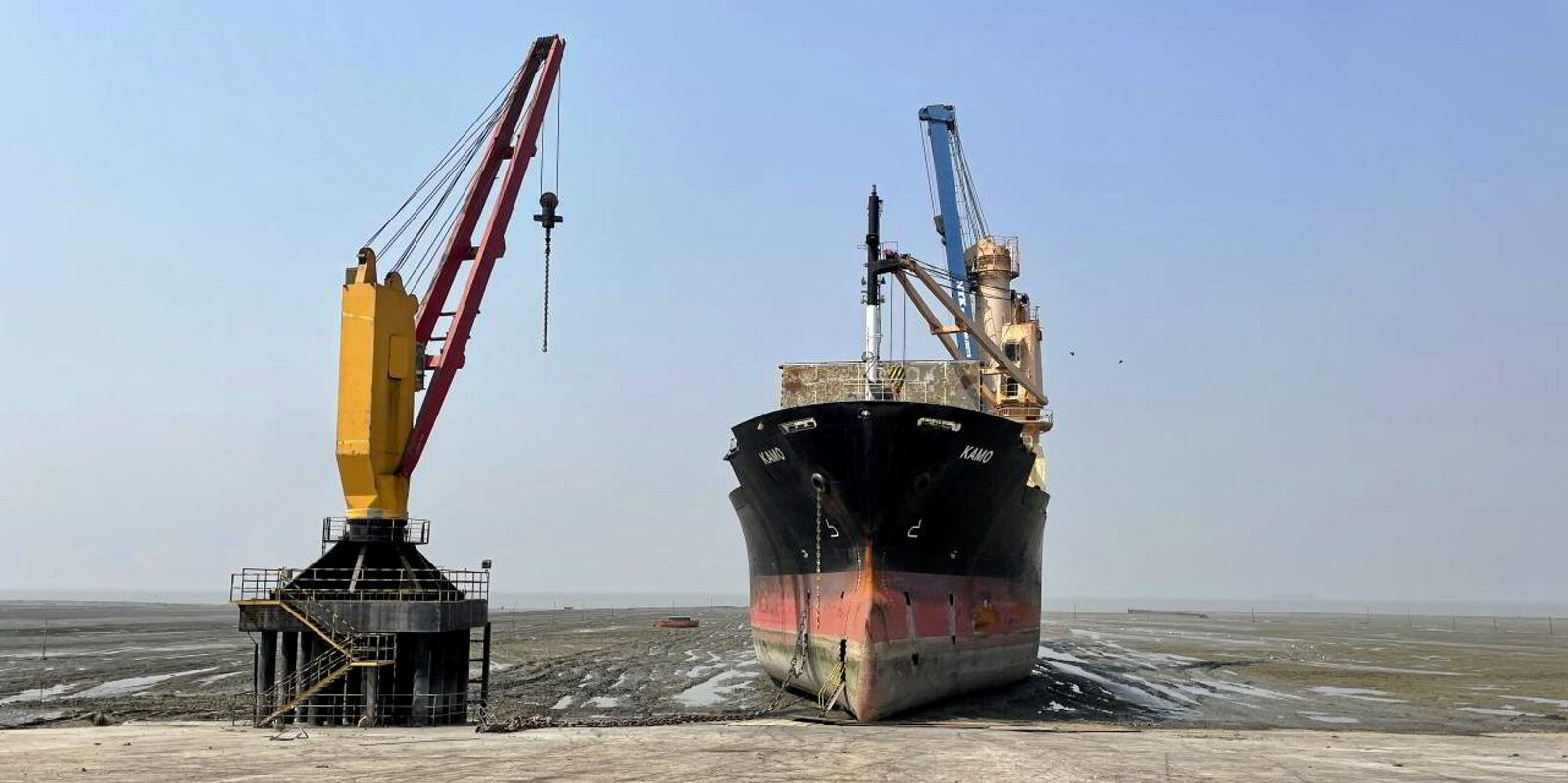India’s cabinet is soon expected to vote on a transformative shipbuilding policy aimed at enhancing the country’s position in the global shipbuilding and ship recycling sectors.
Key components include a ship recycling credit note worth 40% of the scrap value of vessels recycled at Indian yards that can be offset against the price of a newbuilding, alongside fixed subsidies for newbuilding costs.
These incentives aim to substantially reduce the cost of building ships in India and give the country’s shipbuilders a competitive edge over China, South Korea and Japan.
The ambitious Shipbuilding Policy 2.0 is also designed to encourage domestic and international shipowners to recycle their ships in the country.
India’s shipbuilding sector currently stands at less than 1% of the global market, but the policy aims to push the country into the top 10 by 2030 and top five by 2047.
The Modi government plans to establish maritime clusters in the states of Andhra Pradesh, Gujarat, and Odisha to foster this growth.
International participation and investment will be encouraged.
The policy also includes providing an additional 20% subsidy on the cost of a newbuilding. The subsidy increases to 25% for tankers and gas carriers, and 30% for eco-ships fitted with advanced technologies.
Incentives available until 2034
These incentives will be offered until March 2034, with potential extensions offered through to 2047.
Rohit Goyanka, director of Star Asia Shipbroking, warned that shipowners must both recycle their vessels and place newbuilding orders simultaneously to benefit from the ship recycling incentives.
“From our understanding of the policy, it has to be a dual package deal to fit the framework,” he said.
The Indian shipbuilding industry was valued at $90m in 2022, according to data by London-based Finextra Research.
It listed the main shipbuilders as Cochin Shipyard with a 22% market share, Hindustan Shipyard at 18%, Larsen & Toubro Shipyard at 15% and Mazagon Dock Shipbuilders at 12%.
In addition, Swan Energy is in the process of reviving the former Pipavav Shipyard, which was once one of the country’s largest shipbuilders.
Adani Group is also working on plans to build a large shipbuilding yard on the west coast of India.
In recent years, existing Indian shipyards have focused mostly on government and military contracts and orders for offshore structures as contracts for commercial ships have been few and far between.
However, the government wants the country’s shipbuilding sector to grow in value to more than $8bn within the next decade.
“To compete with these established shipbuilding nations, India needs to present a compelling case to shipowners globally. The introduction of bundled incentives such as the 40% is a strategic move to attract more shipowners to choose India as their preferred shipbuilding destination,” said a representative of Dubai-based cash buyer and shipowner GMS.
Ship recycling sources believe the policy will provide a significant incentive for shipowners to recycle in India.
They told TradeWinds that it could spark unprecedented growth for the country’s shipping industry as a whole. By linking ship recycling with the construction of newbuildings, it creates a sustainable cycle that benefits both sectors.
Growth in domestic shipbuilding
“The increased volume of ships being recycled in India would naturally lead to a rise in new ship construction at Indian shipyards, driving substantial development in the shipbuilding industry as well,” said Varsha Mishra, marketing manager at cash buyer Best Oasis.
“The introduction of the recycling credit note scheme is a significant incentive that could drastically shift the dynamics of the industry. This policy is likely to make India a leading hub for ship recycling, attracting more business from around the world and drawing it away from other countries like Bangladesh and Pakistan, where such incentives are not available,” she added.
Nayeem Noor Mohammed, GMS’ head of business development, said the policy represents a substantial step forward for India’s maritime sector by aiming to establish a long-term relationship with the global maritime community.
“This policy is a very positive initiative from the Indian government. If implemented effectively, it could significantly enhance India’s position in the global shipbuilding market while contributing to broader sustainability goals within the industry,” he said.
While recent local media reports have indicated that the Indian cabinet could vote on Shipbuilding Policy 2.0 as early as next week, others believe a longer timeline might be more realistic.
“In India, such things take time to pass. The cabinet will probably first want to determine what value it brings to India, but I think it will pass because it is clear that this is a good thing,” said Goyanka.
Noor Mohammed agreed that the policy could unlock significant economic benefits, and said it is attainable.
“India possesses a vast talent pool that contributes to the maritime industry in various capacities globally. These professionals will undoubtedly add value to the successful implementation of this policy, ensuring that India can meet international standards and demands,” he said.
Mishra said that overall, while the policy will take some time to fully roll out, its potential to transform the ship recycling and shipbuilding industries is immense.
“If implemented effectively, it could position India as a global leader in these sectors, driving significant growth and innovation across the industry,” she concluded.






